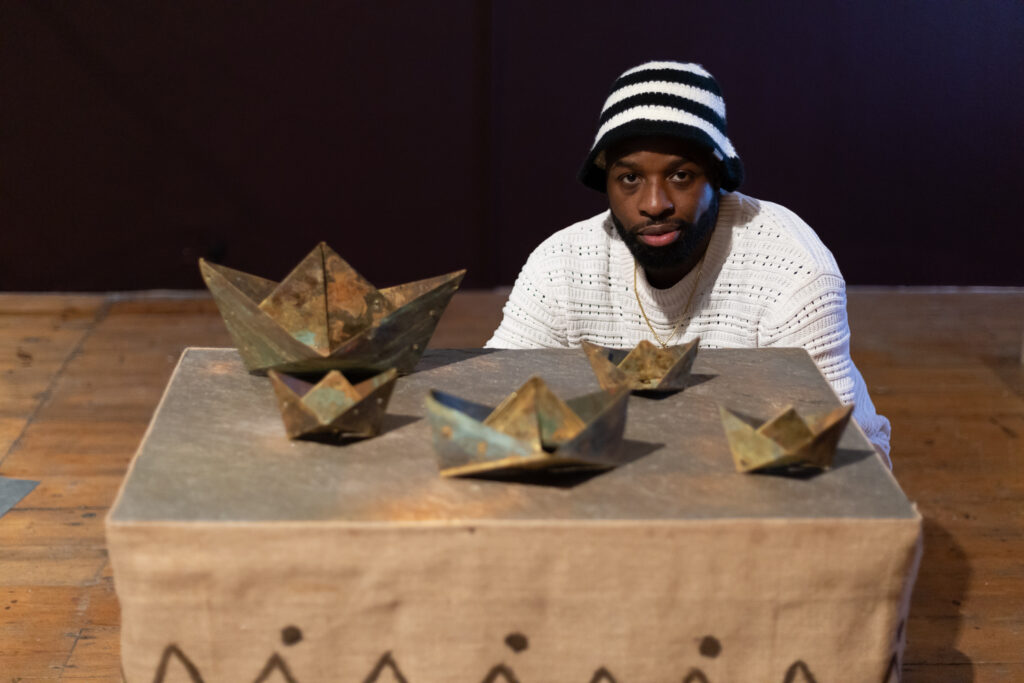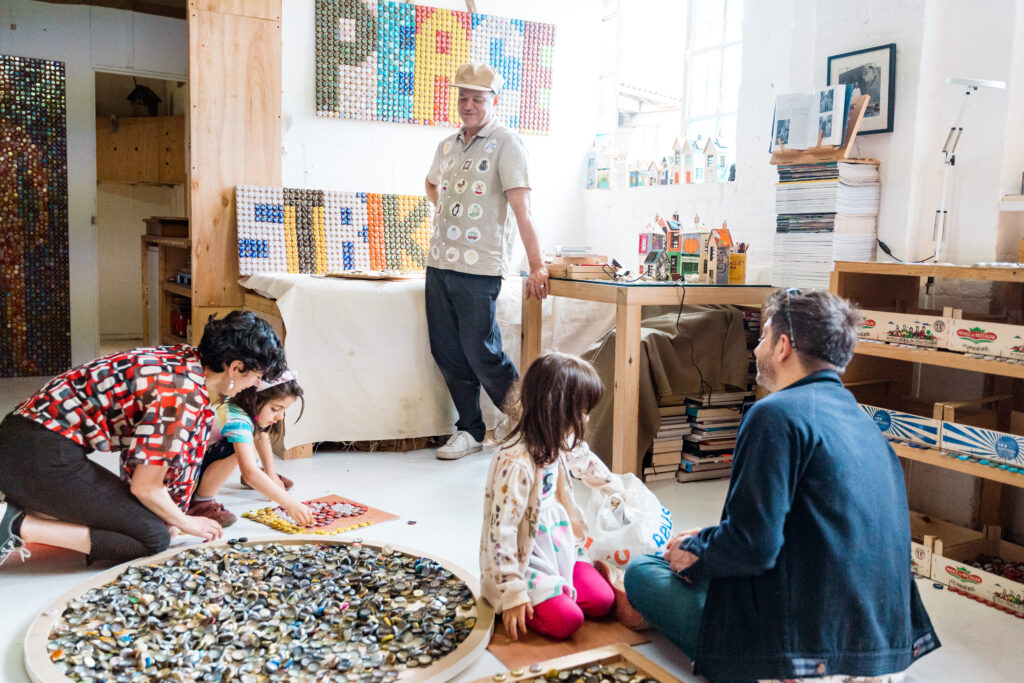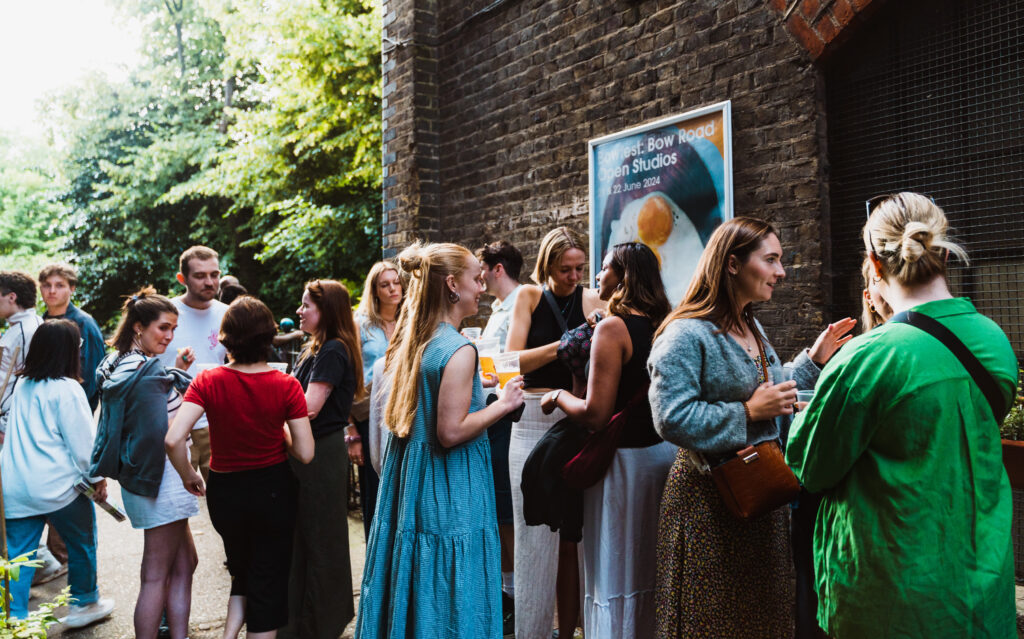
- This event has passed.
Workshop: an intro to natural indigo dyeing with Samantha Russell and Tens Studio
Saturday 20th April 2024 , 2:00pm to 4:00pm
This workshop is now sold out. Please email nunnery@bowarts.com if you would like to be added to the waitlist.
Rooted in the historical and colonial legacies of the indigo plant, learn how to use this natural material to play, experiment, and create your own tie dye designs.
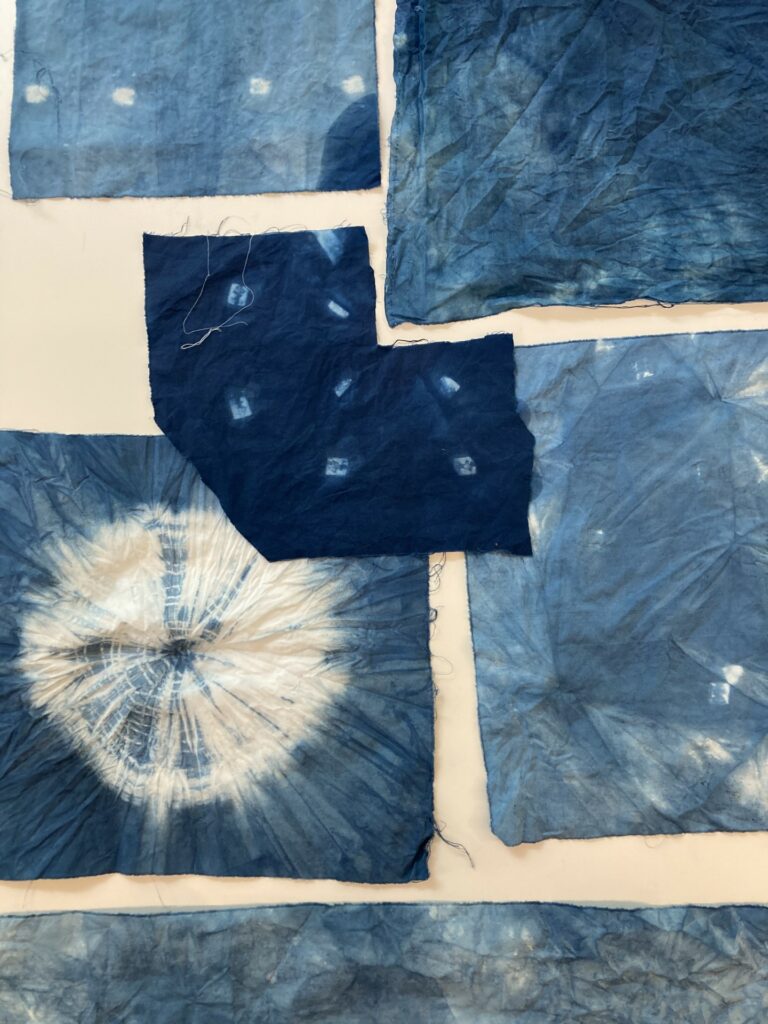
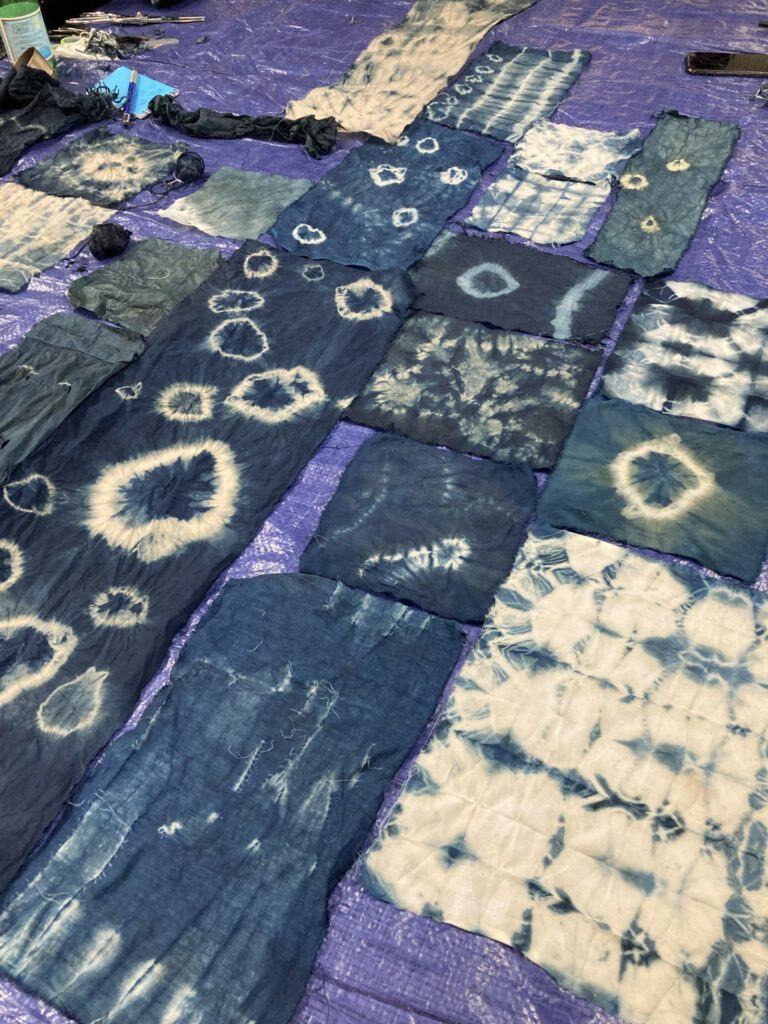
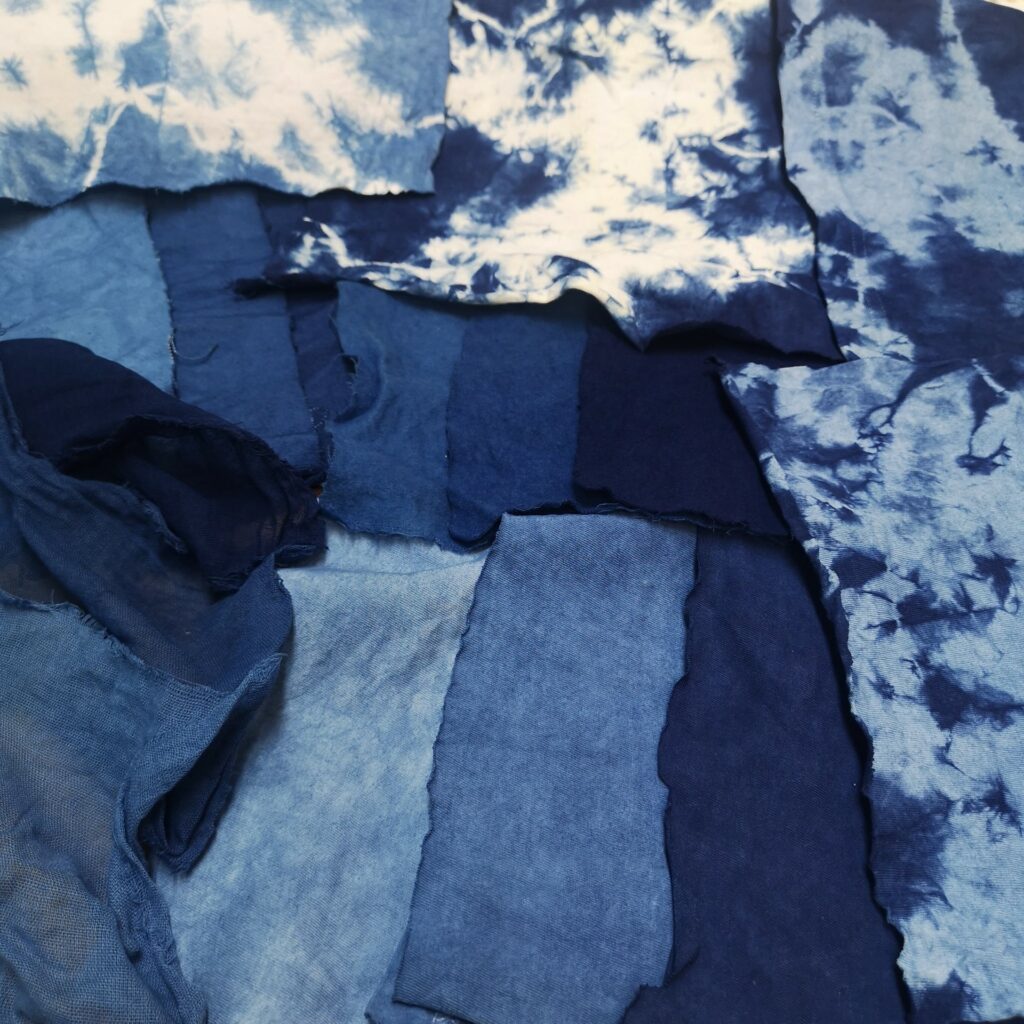
The history of the indigo plant is one that is fundamentally tied into legacies of colonialism and slavery. Despite its cultural significance, enslaved Africans in Jamaica were not permitted to use indigo dyes recreationally.
Through her personal practice and work through Tens Studio, Samantha Russell uses indigo as a medium to acknowledge and respond to these histories, whilst celebrating contemporary indigo practices in Africa and the spirit of exploration and experimentation that the pigment embodies.
These histories are where this hands-on, practical workshop will begin, as we learn how to use a range of tie dye and resist dye techniques to create unique, experimental designs on cotton samples. You will be encouraged to play freely with the indigo and enjoy the process-centred approach it demands – there are no mistakes!
By nurturing this cultural engagement with indigo whilst contextualising its history, you will leave the workshop with a grounded understanding of the plant and the many stories it holds.
No experience necessary – all materials are provided!
Participants are encouraged to bring one or two small, used garments – preferably white or cream natural plant textile garments like cotton or linen t-shirts, bandanas, etc. – to re-imagine through the natural indigo dyeing process. New garments are less likely to take up the dye!
Participants will need to bring:
- Apron or clothing they don’t mind getting a little messy!
- A waterproof bag to carry home samples
- 1 or 2 small, used garments – preferably white/cream natural plant textiles like cotton or linen t-shirts or bandanas
This workshop is now sold out. Please email nunnery@bowarts.com if you would like to be added to the waitlist.
Concession rate applies to students, over 65s, under 18s, Bow Arts artists, National Art Pass members, and key workers
This event will be held in the Bow Arts Courtyard Room. Visitors can enter by buzzing in through the grey doors.
More about Samantha Russell and Tens Studio
Samantha Russell is an interdisciplinary artist and educator. She works part-time as a sewing fabricator for Yinka Shonibare’s studio. Samantha is interested in traditional hand-crafted textile techniques and materials from Africa and the Caribbean, such as natural indigo and bark cloth. She is also interested in the intersection between heritage, culture, and black British post-war identity. Bringing decolonial materials and histories to the forefront through sharing knowledge and skills during workshops is integral to my practice. Recently graduating from Ma Global Black Studies, Samantha aims to develop the findings from her academic work into a liberatory visual language.
Access information
The Bow Arts Trust courtyard has step-free access throughout from street level, including to the accessible toilet, and is service animal friendly. This venue does not have a hearing loop system. Accessible parking is not available on-site but blue badge parking can be found 500m away on Fairfield Road.
If you have any questions regarding accessibility at this venue or event, would like to make us aware of any access requirements that you have in advance of visiting, or would like this information in an alternate format including Easy Read, please email nunnery@bowarts.com or call 020 3967 1643.
Access requirements could include things like providing equipment, services or support (e.g. information in Easy Read, speech to text software, additional 1:1 support), adjusting workshop timings (e.g. more break times), adjustments to the event space or anything else you can think of!
Transport Information
Opening hours: Mon-Fri, 9am to 5pm
Address: Bow Arts Trust, 183 Bow Road, London, E3 2SJ
Nearest station(s): Bow Road (District and Hammersmith and City lines) is a 6-minute walk away, and Bow Church (DLR) is a 3-minute walk away.
Bus: 205, 25, 425, A8, D8, 108, 276, 488 and 8 all service the surrounding area.
Bike: Bicycle parking is located at Bow Church Station. The nearest Santander Cycles docking station is at Bow Church Station.
